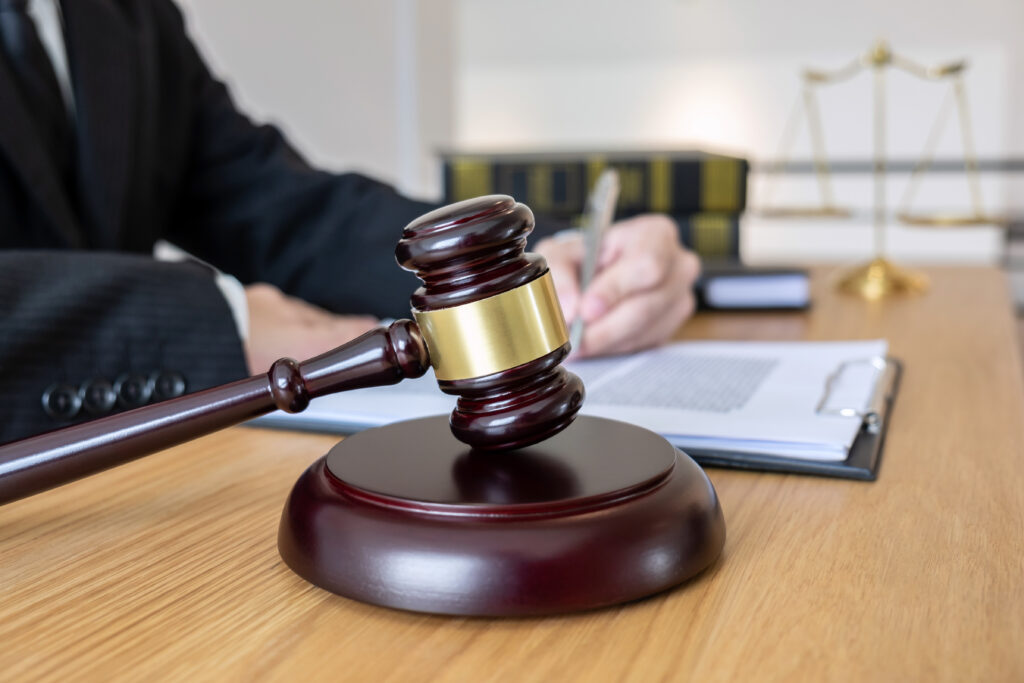In Alberta, the government covers basic medical bills for car accident victims through the province’s Insurance Corporation (ICBC) or through the Alberta Health Care Insurance Plan. This coverage typically includes emergency care, hospital stays, and medical treatment. However, if you suffer serious injuries in an accident resulting from a negligent driver, you may be entitled to additional compensation beyond what the government covers.
A skilled Calgary car accident lawyer can help you recover money for pain and suffering, lost income, loss of earning capacity, and other losses. They will also ensure that your rights are protected and can negotiate with insurance companies to secure the best possible outcome for your case.
Types of Crashes that Negligent Drivers Frequently Cause
Negligent drivers can cause various types of car accidents, often resulting in serious injuries or fatalities. The most common types of crashes due to driver negligence include:

- Rear-End Collisions: These accidents occur when one vehicle crashes into the back of another. They often result from distracted driving, such as texting while driving or tailgating in heavy traffic. Rear-end crashes can cause whiplash, back injuries, or head trauma.
- T-bone Accidents (Side-Impact Collisions): This type of crash happens when one vehicle hits the side of another, often at intersections. T-bone accidents frequently result from drivers running red lights or failing to yield the right-of-way. These collisions can be very dangerous due to the lack of protection on the sides of vehicles.
- Head-On Collisions: Head-on accidents occur when two vehicles crash into each other from opposite directions. These accidents often result from drivers who are driving under the influence of alcohol or drugs, driving while drowsy, or failing to stay in their lane. Head-on collisions are among the most deadly and severe types of accidents.
- Side-Swipe Accidents: Side-swipe crashes happen when two vehicles make contact while travelling in the same direction, often because one driver changes lanes without checking their blind spot. These accidents can result in serious injuries if one of the vehicles loses control or crashes into another object.
- Single-Vehicle Crashes: In these accidents, only one vehicle is involved. Negligent driving, such as speeding, running off the road, or losing control in bad weather, can lead to these types of crashes. Single-vehicle accidents often cause severe injuries – especially for passengers.
- Hit-and-Run Accidents: These crashes occur when a driver leaves the scene of an accident without stopping to offer assistance or exchange information. Hit-and-run drivers are often trying to avoid legal or financial consequences for their actions.
Physical and Mental Injuries that Occur in Car Accidents
Car accidents that result from negligent drivers can bring about a wide range of physical and mental injuries. These injuries may vary in severity, but many victims experience both immediate and long-term effects.
Whiplash is one of the most common injuries in rear-end crashes and occurs when the victim’s neck is suddenly jolted backward and then forward. This can cause strain to the ligaments and muscles in the neck, frequently leading to pain, stiffness, and difficulty moving the head.
Car crashes, especially high-impact ones, may also result in broken bones. Common fractures include those to the arms, legs, ribs, and collarbones. These injuries can require long periods of recovery and, in some cases, surgery to repair.
Traumatic brain injuries (TBIs), including concussions, are also serious and can happen when the victim’s head strikes an object inside the vehicle, like the steering wheel or window. Brain injuries can cause long-term cognitive problems, memory loss, or even permanent disability.
Car accident victims may also suffer spinal cord damage. Damage to the spine can result in partial or full paralysis, depending on the injury’s location. Spinal cord injuries are among the most severe and can significantly affect a person’s ability to move or function.
Blunt force trauma from the crash impact can lead to internal injuries, including damage to organs like the lungs, liver, or kidneys. These injuries may not always be immediately visible but can be life-threatening if not treated immediately.
Finally, soft tissue injuries include damage to muscles, tendons, and ligaments, which may result from sudden jerking movements in a car crash. Soft tissue injuries, like sprains or strains, can cause ongoing pain and limit mobility.
In addition to physical injuries, car accident victims may also suffer mental injuries, including the following:
- Post-Traumatic Stress Disorder (PTSD): Many accident victims suffer from PTSD, especially if the crash was violent or involved significant trauma. Symptoms may include flashbacks, anxiety, and nightmares, which can interfere with daily life.
- Depression and Anxiety: The stress of dealing with injuries, medical treatments, and financial concerns can lead to depression and anxiety. Victims may also experience feelings of helplessness or fear about their recovery.
- Emotional Distress: Car accidents can be traumatic experiences that affect a person’s emotional well-being. Victims may experience fear, anger, or sadness, which can complicate their recovery process.
Both physical and mental injuries can take a toll on a person’s life. If you’ve been in a car crash that a negligent driver caused, seeking ongoing medical attention and obtaining legal help is essential to get the support and compensation you need.
Factors that Determine the Value of a Car Accident Claim
The value of a car accident claim depends on several key factors, all of which contribute to the overall compensation a victim may recover. While every case is unique, the following factors are generally the most important when determining how much a car accident claim is worth:
- Severity of Injuries: The extent of physical and emotional injuries is one of the most significant factors. Severe or permanent injuries, such as spinal cord damage or traumatic brain injuries, can significantly increase the value of a claim. In contrast, minor injuries may lead to a lower settlement, though they still deserve compensation for pain and suffering and other related losses.
- Effects on Daily Life: If the accident and its injuries affect the victim’s ability to perform daily tasks or return to work, the claim value can increase.
- Insurance Coverage: The available insurance coverage is another determining factor. If the negligent driver has sufficient insurance coverage, the claim is more likely to result in a higher payout. In cases where the driver is underinsured or uninsured, recovering full compensation can be more challenging, and additional legal strategies may be necessary.
- Pre-Existing Conditions: If the victim had pre-existing injuries or conditions that were aggravated in the accident, it may affect the claim’s value. Insurance companies may argue that some injuries did not result from the crash, so proving the connection between the accident and the condition is important for a higher settlement.
Types of Damages You Can Recover in a Car Accident Claim or Lawsuit Besides Medical Bills
In Alberta, the government pays for medical bills that accident victims suffer. However, injured victims may be eligible for additional compensation depending on their circumstances. Compensation for specific losses helps victims recover from both the physical and emotional effects of their accident.
First, pain and suffering compensation is for the physical pain and discomfort you endure due to the accident and your injuries. It also accounts for the emotional pain you experience, such as anxiety, depression, or fear related to your injuries. The severity and duration of your pain can influence the amount of compensation you receive.
Moreover, car accidents often cause mental and emotional trauma. This can include post-traumatic stress disorder (PTSD), anxiety, depression, or panic attacks. If your mental health has been significantly affected due to the accident, you may be entitled to compensation for the mental distress it has caused.
If your injuries affect your ability to enjoy the activities you once did, such as hobbies, sports, or spending time with family and friends, you may be compensated for the loss of these life experiences. Compensation for this damage takes into account how the injury has changed your lifestyle.
If you are unable to work because of your injuries, you can also be compensated for the income you lost while recovering. This includes both past and future lost earnings. For example, if you had to take time off work during your recovery or were unable to return to your job, the income you would have earned is part of the compensation. Similarly, if your injuries prevent you from returning to your previous job or career – or if they reduce your ability to earn a living in the future – you may receive compensation for your loss of earning capacity. This compensates for long-term or permanent reductions in your ability to work and earn an income.
If your injuries affect your relationship with your spouse, they may be entitled to compensation as well. Compensation for this damage covers the loss of companionship, affection, or sexual relationship that the spouse may suffer due to the accident.
Finally, in cases where the negligent driver’s behaviour was particularly reckless, such as driving under the influence, punitive damages may be awarded. These damages are not meant to compensate you for a specific loss but to punish the wrongdoer and discourage similar actions in the future.
Compensation for each of these losses helps to ensure that the financial and emotional effects of an accident are fairly addressed, allowing you to focus on your recovery. An experienced lawyer can navigate the process for you and fight for the compensation you deserve.
How Can a Car Accident Lawyer Handle Your Case from Beginning to End?

A knowledgeable car accident lawyer can be a vital resource when you’re dealing with the aftermath of an accident resulting from someone else’s negligence. From the moment you retain them, a skilled lawyer will handle your case from start to finish, ensuring that you receive the compensation you’re entitled to recover.
The process begins with an initial consultation, where a lawyer will listen to the details of your accident and evaluate the strength of your case. They’ll ask questions about the accident, your injuries, and any documentation you have, such as police reports, medical records, or witness statements. Based on this information, they can provide an initial assessment of your claim and explain what to expect moving forward.
Once you’ve decided to move forward, your lawyer will begin investigating the circumstances of the car accident. This includes gathering key evidence such as police reports, traffic camera footage, photos from the accident scene, and witness testimony. If necessary, the lawyer will also consult with accident reconstruction experts or medical professionals to build a strong case. The goal is to gather all relevant facts to prove the other driver’s negligence and the extent of your injuries.
A major part of handling a car accident case is dealing with insurance companies. Your lawyer will communicate with the at-fault driver’s insurance company to negotiate a fair settlement. Insurance adjusters often try to offer low settlements or deny claims, but a knowledgeable lawyer knows how to counter these tactics. They will advocate on your behalf to ensure that your lost earnings, pain and suffering, and other losses are properly compensated.
If a settlement cannot be reached, your lawyer will file a lawsuit on your behalf. This involves preparing and submitting all necessary legal documents to the court, such as a complaint outlining your case. Your lawyer will also ensure that all deadlines are met and that all paperwork is in order.
If your case goes to trial, your lawyer will represent you in court. They will question witnesses, present evidence, and argue your case before a judge and jury. Throughout the trial, they will work to demonstrate that the other driver was at fault and that you deserve compensation for your injuries and losses.
Whether through a settlement or court verdict, a skilled car accident lawyer will ensure that you receive fair compensation for your injuries. Throughout the process, they’ll provide guidance, keep you informed, and handle all of the legal details so you can focus on recovering from your accident.
Speak with an Experienced Car Accident Lawyer Right Away

Although the government pays for medical bills in Canada, injured car accident victims may be eligible to recover other damages. A skilled Calgary personal injury lawyer will aggressively advocate for your interests and pursue the maximum compensation you deserve for your lost earnings, pain and suffering, and other damages resulting from your car crash.
